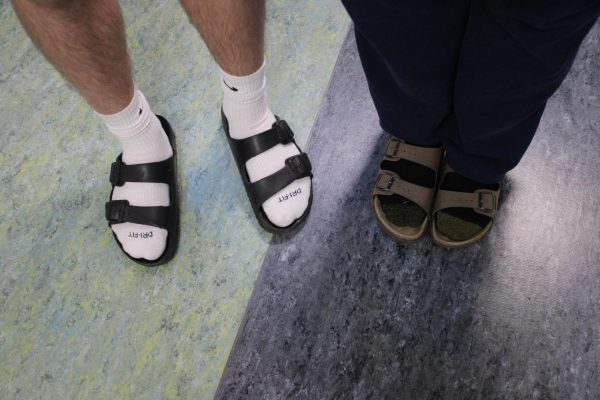See-Ya TV. Hello Internet!
Today, I’m not going to talk about how TV is rotting our brains. Or how TV violence is corrupting the minds of our young, innocent children. Those are topics for another day. Instead, I’ll just ask a simple question: Have you noticed that TV is slowly becoming obsolete?
Let’s start by breaking down TV. One of the most valuable aspects of television is having access to popular news outlets covering events from around the world. This was one of the major impacts of TV when it first became available. Instead of having to wait for tomorrow’s newspaper, you could simply watch the morning or evening news and receive updates on events that occurred throughout the world.
In addition, television has long been a major source of entertainment for the masses thanks to its enormous vault of shows. True, not all of them can be considered popular or even good, but the sheer variety of genres such as sports, cooking, mystery, history, and drama is enough to catch anyone’s attention.
Now that we’ve looked at TV’s strengths, let’s compare them to what the Internet has to offer. Personally, I don’t take a lot of interest in the news. The most news I get is about five minutes of whatever is on NBC in the morning. Other than that, I get the rest of my news from whatever my friends and family share, either in person or on social media. I simply don’t have enough interest in “hard news” to actively seek it out.
However, I am subscribed to several channels on YouTube that deliver the news that I find relevant. Indeed, I can’t think of a single news station that doesn’t have some form of social media account. What do they use these accounts for? News. News that is easily accessible throughout the day. News that goes directly to your phone. News you can easily pull up on Twitter to see if something significant has occurred. It’s a lot easier and faster than simply waiting until you come home at the end of the day and watching the 6 pm news. As senior Gabriel Vincent recently admitted, “I receive the majority of my news from Facebook.”
You might be asking, “Well, what happens when a catastrophe occurs and I want constant updates?” My answer would be, “Look at their websites.” Many of these news stations not only post news updates on Twitter, they also provide live streaming of their broadcasts online. In fact, you could receive all of your news from monitoring, say, NBC’s Twitter feed or watching a live stream.
Now that I’ve proven you don’t need a TV for news, what about entertainment? Go to Google and search for a TV station that makes new episodes of your favorite show. More than likely, they have every episode that has been recently released available for free streaming– a fact that can unfortunately lead to online binging. “I spend a lot of time watching shows on the internet. More than I should,” said Vincent. True, these episodes aren’t available forever, but the sheer volume of available shows is enough to keep you glued to your computer screen.
Then there are streaming companies like Netflix. The streaming giant has definitely stepped up its game and produced some high-quality shows. I can’t go through a week without hearing someone mention watching House of Cards or Orange is the New Black. Personally, I’ve taken an extreme interest in Daredevil and Jessica Jones because they have incredibly superb actors, are well-written and highly addicting. And what’s the price for these quality shows? Eight dollars a month for my favorite shows and anything else that Netflix has to offer.
You may be wondering, “Why should I care if TV goes the way of the dodo bird?” Good question. Have you ever imagined working for companies such as DirecTV or Comcast? A few years ago, that might not have been a bad idea. However, if people are slowly relying on the internet for their news and entertainment, what use will these companies have in the future? TVs themselves may still be used for games, or perhaps playing videos from the internet. But why would someone pay for both a TV and internet subscription when they could get everything from both subscriptions for the cost of one?
So how can we turn this media transformation into an advantage? Well, if you were planning on working for a TV company, it might be best to aim for a popular internet service such as Netflix or Hulu rather than a cable company. Both services are incredibly popular right now, and now there’s a good chance that they have nowhere to go but up.
Perhaps this is just some crazy conspiracy theory that I came up with while wearing my tin foil hat, or, perhaps this really is our future– a future where TV becomes largely obsolete and we concentrate more on the internet than anything else. It’s easy to see how the internet is already influencing our lives right now. Over the years we’ve seen a significant increase in dependence on it. So it’s entirely possible that something as old as television would get swept away by the rising power of the internet. We’ll have to see, won’t we?






